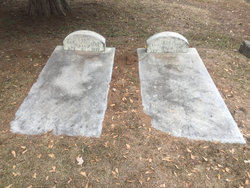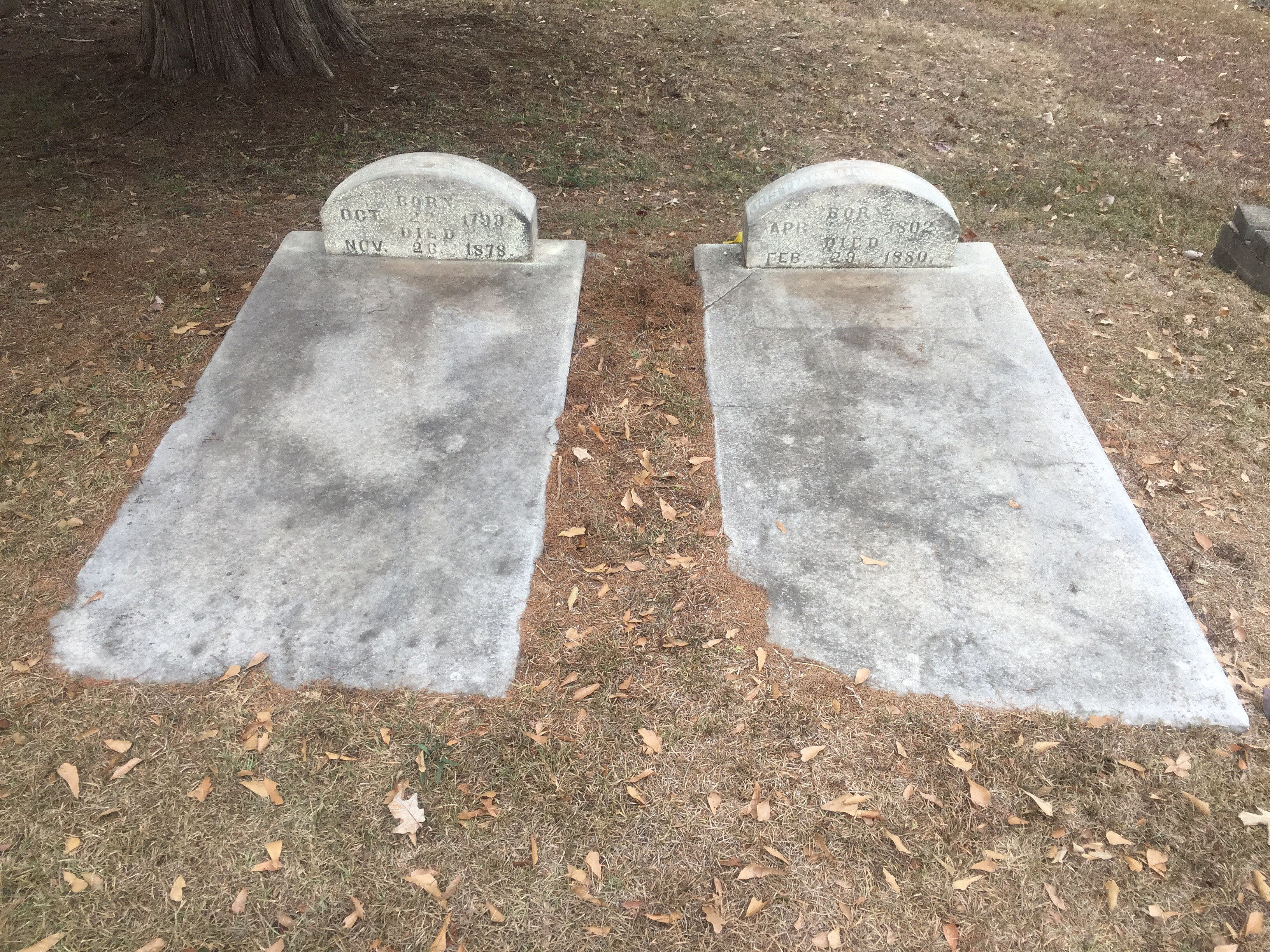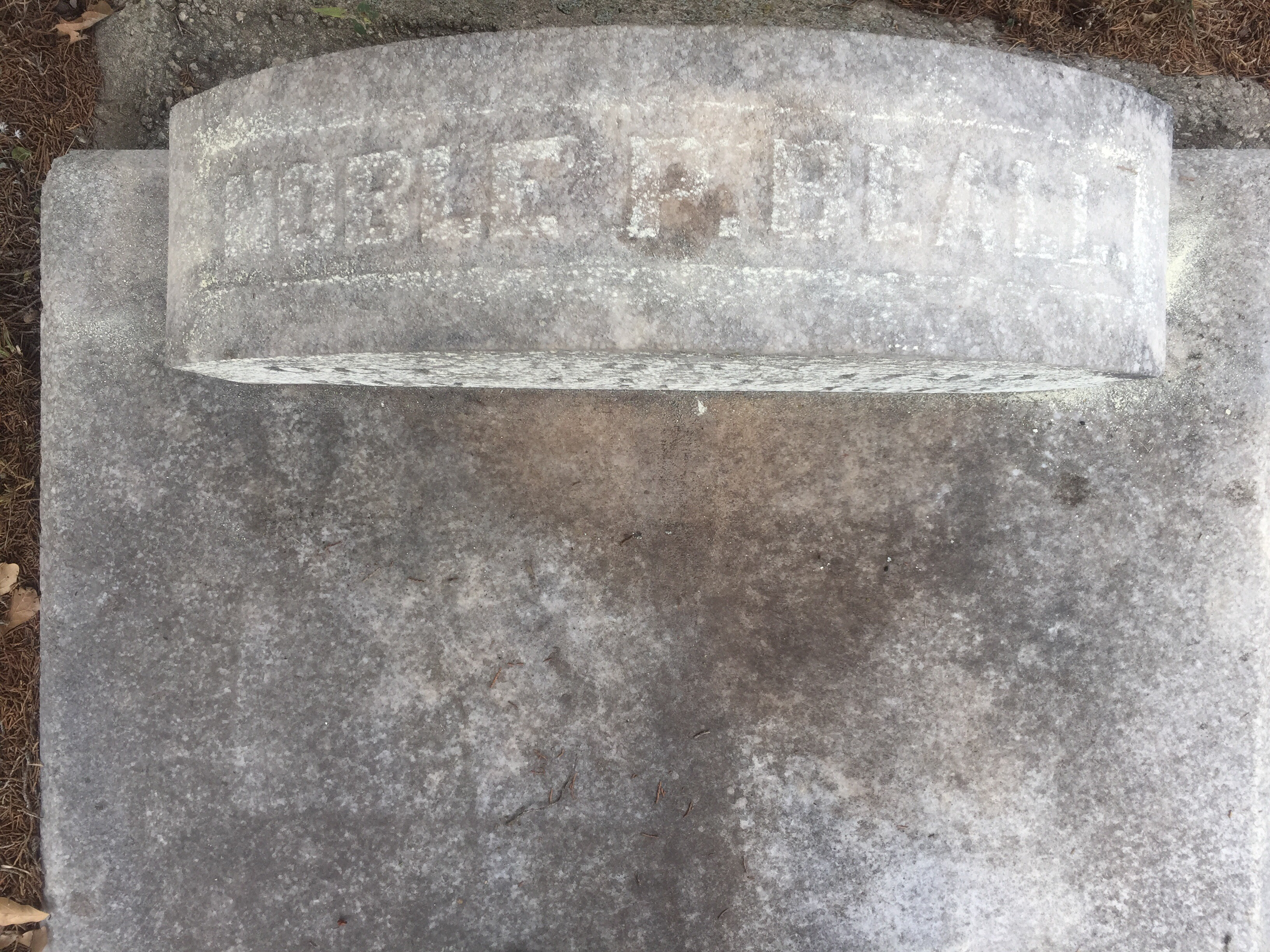His wife was Justianna D., daughter of Capt. Matthew Hooper. She was born in 1801 in Anderson district, S. C. Her father was an intelligent merchant of broad and extensive culture. He was a fine classical scholar and in his old age found great pleasure in reading Virgil and Horace and other like authors.
Noble P. Beall and Justianna D. Hooper were married when they were respectively nineteen and seventeen years of age, and lived happily together for sixty years, each attaining the advanced age of seventy-nine. Noble P. Beall was twice completely broken up, and all his property swept from him on account of security debts, incurred by him for the benefit of relatives, but with that indomitable energy which he possessed, he never surrendered to misfortune, but renewed his efforts at every adversity, and with the help and encouragement which his noble wife ever gave him, he bravely encountered, and successfully overcame every obstacle and difficulty in life.
In 1839 he, with his brother-in-law, Col. James D. Wood, moved with their families to Tishomingo county, Miss., and bought large bodies of land near Eastport, on the Tennessee river. This was then a wild and unsettled part of the state; there was not even a cornmill in the county; they ground their corn on handmills, like the old-fashioned coffeemill. In this new and untried land Noble P. Beall began life anew. He opened up a fine plantation, which he successfully operated until he was again broken up by the devastations of the Federal army, which invaded that part of the state in 1862, and carried off all his slaves, horses, mules and cattle and destroyed everything else he had except his lands.
Having lost all he had by the war, and all his children having married and scattered through Mississippi, Alabama, Tennessee, and Georgia, he and wife moved back to Georgia in 1872 and settled in Cartersville, Bartow county, where they had three daughters then living.
Noble P. Beall was never a politician or office seeker, but always took an active interest in public affairs, and was all his life a consistent democrat, and never cast other than a democratic vote. He and his wife were active members of the Baptist church, and were always found on the moral side of every question. They were the friends and strong supporters of the cause of education, and at great expense educated their children far beyond what other parents in that part of the state usually did.
His wife was Justianna D., daughter of Capt. Matthew Hooper. She was born in 1801 in Anderson district, S. C. Her father was an intelligent merchant of broad and extensive culture. He was a fine classical scholar and in his old age found great pleasure in reading Virgil and Horace and other like authors.
Noble P. Beall and Justianna D. Hooper were married when they were respectively nineteen and seventeen years of age, and lived happily together for sixty years, each attaining the advanced age of seventy-nine. Noble P. Beall was twice completely broken up, and all his property swept from him on account of security debts, incurred by him for the benefit of relatives, but with that indomitable energy which he possessed, he never surrendered to misfortune, but renewed his efforts at every adversity, and with the help and encouragement which his noble wife ever gave him, he bravely encountered, and successfully overcame every obstacle and difficulty in life.
In 1839 he, with his brother-in-law, Col. James D. Wood, moved with their families to Tishomingo county, Miss., and bought large bodies of land near Eastport, on the Tennessee river. This was then a wild and unsettled part of the state; there was not even a cornmill in the county; they ground their corn on handmills, like the old-fashioned coffeemill. In this new and untried land Noble P. Beall began life anew. He opened up a fine plantation, which he successfully operated until he was again broken up by the devastations of the Federal army, which invaded that part of the state in 1862, and carried off all his slaves, horses, mules and cattle and destroyed everything else he had except his lands.
Having lost all he had by the war, and all his children having married and scattered through Mississippi, Alabama, Tennessee, and Georgia, he and wife moved back to Georgia in 1872 and settled in Cartersville, Bartow county, where they had three daughters then living.
Noble P. Beall was never a politician or office seeker, but always took an active interest in public affairs, and was all his life a consistent democrat, and never cast other than a democratic vote. He and his wife were active members of the Baptist church, and were always found on the moral side of every question. They were the friends and strong supporters of the cause of education, and at great expense educated their children far beyond what other parents in that part of the state usually did.
Family Members
Advertisement
Advertisement

















